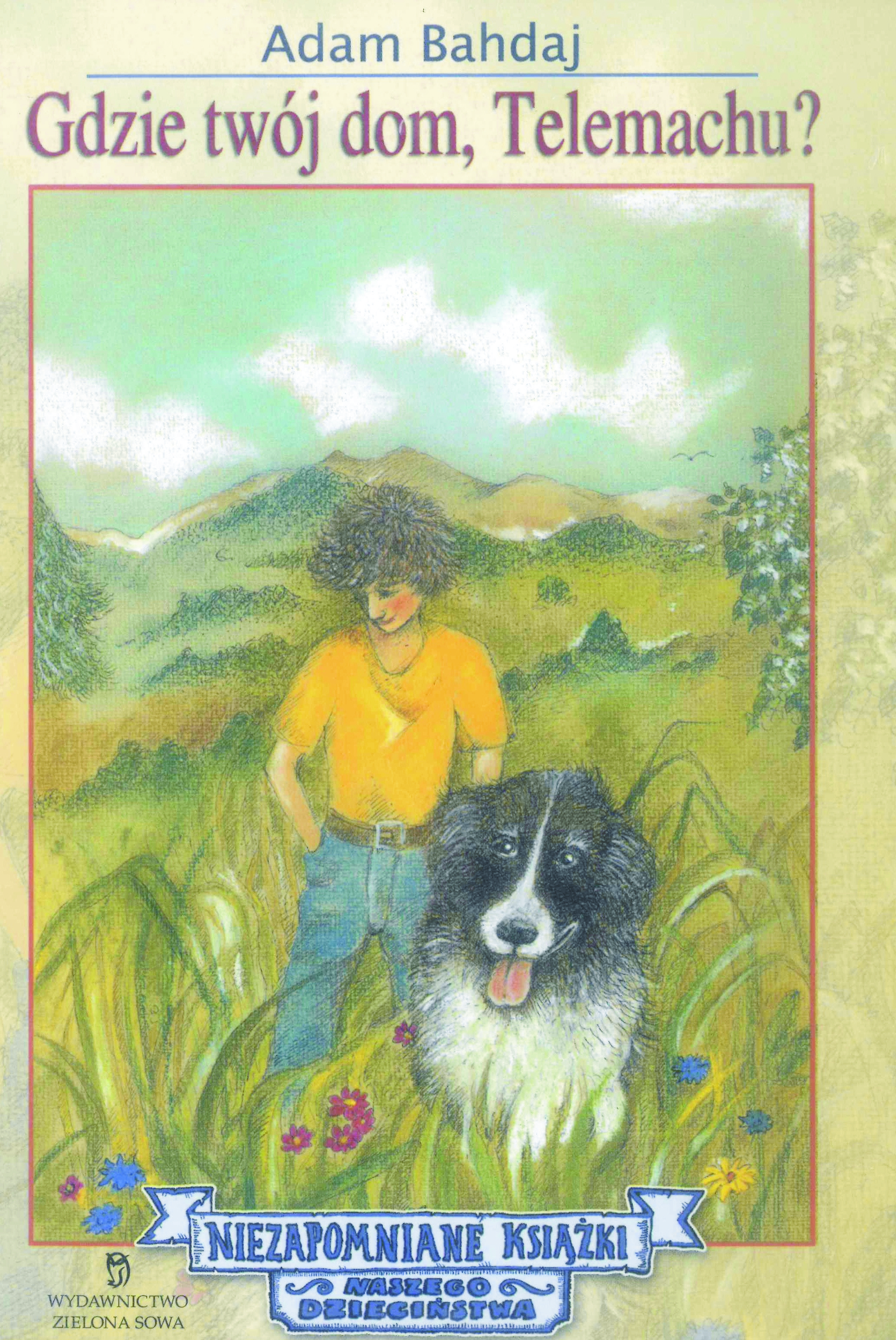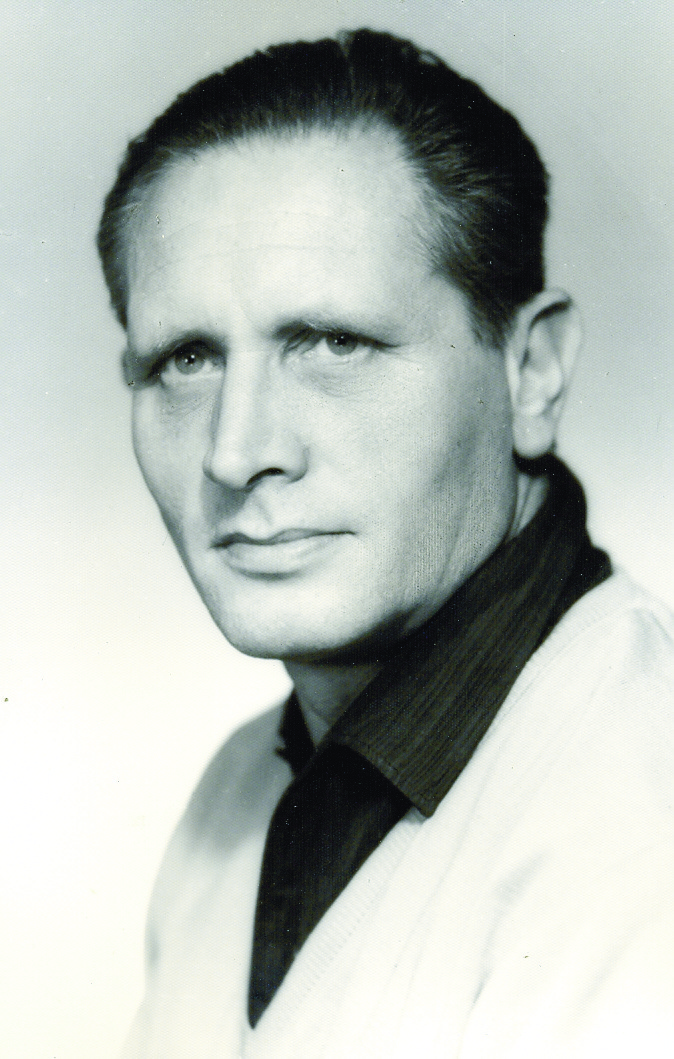Title of the work
Country of the First Edition
Country/countries of popularity
Original Language
First Edition Date
First Edition Details
Adam Bahdaj, Gdzie twój dom, Telemachu? Warszawa: Krajowa Agencja Wydawnicza, 1982, 364 pp.
ISBN
Genre
Novels
Target Audience
Crossover (Children, teenagers)
Cover

Cover from the edition Kraków: Zielona Sowa, 2004.
Author of the Entry:
Summary: Ilona Szewczyk, University of Warsaw, szewczyk@al.uw.edu.pl
Analysis: Marta Pszczolińska, University of Warsaw, m.pszczolinska@al.uw.edu.pl
Peer-reviewer of the Entry:
Katarzyna Marciniak, University of Warsaw, kamar@al.uw.edu.pl
Elżbieta Olechowska, University of Warsaw, elzbieta.olechowska@gmail.com

Photograph courtesy of Marek Bahdaj, the Author’s Son.
Adam Bahdaj
, 1918 - 1985
(Author)
A journalist in the beginning of his career, later branched out into literary prose and translations from Hungarian. Authored novels both for adults and children. Also known under the pen-names of Dominik Damian and Jan Kot. A writer particularly keen on nature, and bright, adventurous characters; he had an optimistic outlook on the world and people. His books are described as lively, humorous and riveting. Some were made into films, like Do przerwy 0:1 [After First Period Score 0:1], 1957; Podróż za jeden uśmiech [A Journey for One Smile], 1964; Stawiam na Tolka Banana [I Back Tolek Banan], 1966. In 1981 Bahdaj was awarded the Polish prize for children’s books Srebrne Koziołki [Silver Billy Goats] for his novel Telemach w dżinsach [Telemachus in Jeans], 1979. The continuation of that book, Gdzie twój dom, Telemachu? [Where’s Your Home, Telemachus?], 1982, was placed on the IBBY Honour List in 1984.
Source:
"Adam Bahdaj" at culture.pl (accessed: December 28, 2020).
Bio prepared by Ilona Szewczyk, University of Warsaw, szewczyk@al.uw.edu.pl
Adaptations
Telemach w dżinsach [Telemachus in Jeans] and Gdzie twój dom, Telemachu? [Where’s Your Home, Telemachus?] were used as basis for a eight-part television series W piątą stronę świata [In the Fifth Direction of the World] produced in 1990 and directed by Julian Dziedzina.
Sequels, Prequels and Spin-offs
Adam Bahdaj, Telemach w dżinsach, Warszawa: Krajowa Agencja Wydawnicza, 1979.
Summary
Based on: Katarzyna Marciniak, Elżbieta Olechowska, Joanna Kłos, Michał Kucharski (eds.), Polish Literature for Children & Young Adults Inspired by Classical Antiquity: A Catalogue, Faculty of “Artes Liberales”, Warsaw: University of Warsaw, 2013, 444 pp.
Maciek Łańko, whom the reader knows from Bahdaj’s novel Telemach w dżinsach [Telemachus in Jeans] moves to his uncle Waldemar’s house located in the nice and quiet village of Błażejów. Things seem to go right till he finds out that Waldemar’s reason for inviting him was his stepson Krzysiek, a troubled young man hanging around with boys his parents do not appreciate at all. Not only do they – Szajba, Szpagat, and Wicek — spend their time just wandering around or playing cards, but they also sell goods taken from their and their friends’ houses. Waldemar’s wife Fela, Krzysiek’s mother, is hoping Maciek will affect her son’s behavior in a positive way, but this doesn’t seem a good idea, as the boys don’t get on well with each other. The conflict between Maciek and Krzysiek slowly becomes more serious, fed by the lack of understanding between them and their romantic interest in Kajtka, a girl, they both, met and made friends with. Luckily, after suffering from a serious lung disease, Maciek decides to leave his uncle’s house and visit his old friend Jojo in the Bieszczady mountains. He is finally able to rest his disturbed soul by working with his hosts Mrs. Kasprzykowa, aunt Honorka and Urszula. He stays there for one month, not willing to return to his uncle’s place. Maciek works hard with his new friends, discovers many mysteries of the forest and its plants and animals and also learns a lot about hunting. He would have probably stayed there longer if his friend Jojo hadn’t been accidentally shot and wounded by a woodsman who mistook him for a poacher. That accident makes Maciek reflect on his life, and he decides to go back to Jerzmanów, but eventually, he accepts the offer to stay in Bieszczady with Jojo.
Analysis
The story in Telemachus in Jeans about Maciek Łańko and his journey to find his father or any information about him has a direct connection to the Homeric myth of Odysseus’ son; starting with the title of the book and continuing with the protagonist who many times compares himself to Telemachus and his search motif. In Where’s Your Home, Telemachus?, however, the search for the missing father is over. Instead, Maciek continues his mental and physical journey seeking a true home he has never experienced living in a dorm. In his uncle's house, quite luxurious and comfortable, he lacks family warmth. He realizes that it is just a place to sleep in, though well cared for; it feels like a dog house rather than a home. The conflict with Krzysiek, a shallow, spoiled boy, who has nothing in common with Maciek, finally pushes him to escape and never return.
Unlike Krzysiek, Maciek reads a lot, has many books, not only comics or easy to read pocketbooks. He has two main literary interests. The first is adventure literature of the Far North: he is an avid reader of Jack London, James Oliver Curwood and James Fenimore Cooper. These books are particularly important for Maciek during his stay in the Bieszczady mountains, a half-wild territory, close to nature and governed by its own rules, independent from the laws of socialist reality. In Bieszczady people are part of nature, there is even a philosophy of mountain life, simple, sometimes harsh and close to the forest and its wild fauna. Maciek compares the locals, hunters, woodmen and rangers to trappers, trackers and hunters from the historical Far North. The common approach there is to appreciate and respect wild animals. By introducing the character of Puchacz (means “eagle-owl”), a photographer living nearby, Bahdaj also presents the idea of a “bloodless hunt”, the term found, used and popularized by Włodzimierz Puchalski (see here, accessed: December 28, 2020).
The second interest of Maciek is Antiquity, here presented on two levels: action and language. When Maciek is sent to be interviewed by the principal of a high school about his potential admission despite his low marks (except in Polish and PhysEd), the boy talks to her about books. He quotes passages from Trojan War by Jan Parandowski, depicts the duel between Achilles and Hector and says that his lesson from the book is not to give up after failures but to fight as Hector did. At the end of the interview, Maciek talks about some philosophical issues – about the fifth Cardinal direction as a potential goal in life, a happiness impossible to achieve, and the way to live a good, honest life. Impressed with Maciek’s point of view, the principal decides to give him a chance for a better education and admits him to her school. Maciek also uses the connection between his knowledge and imagination, for example, solving the mystery of who actually could have shot the stag, he identifies a suspect, being certain that the goddess Diana could not have done it with her bow.
Antiquity is present also at the linguistic level. Maciek compares the mess in Krzysiek’s room and then in Jojo’s to the Augean stables; a tangled thread of action that he cannot detangle is compared to the Gordian knot; the luxurious house of his uncle is contrasted with the Spartan conditions in Jojo’s apartment in the mountains; Kajtka waits for Maciek on a real Pegasus – however not the mythological winged stallion, but a moped of a model called “Pegasus.”
Further Reading
Frycie, Stanisław, ed., Lektury odległe i bliskie. Antologia literatury dla dzieci i młodzieży, Warszawa: Wydawnictwa Szkolne i Pedagogiczne, 1991, 53–56.
Adam Bahdaj, culture.pl (accessed: December 28, 2020).
Kłos, Joanna, “Telemachus in Jeans: Adam Bahdaj’s Reception of the Myth about Odysseus’s Son” in: Katarzyna Marciniak, ed., Our Mythical Childhood... The Classics and Literature for Children and Young Adults, Brill, 2016, 333–345.


